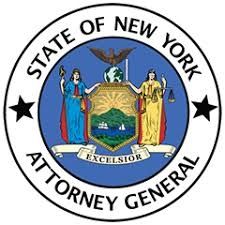The New York Attorney General's Office has been prosecuting Charter Communications, alleging that Charter failed to provide promised internet speeds and reliable access to internet content. The NYAG alleged that Charter misled consumers by advertising that it provided specific speeds ranging from 20 to 300 Mbps and that subscribers were guaranteed "reliable Internet speeds," delivered "consistently," and "without slowdowns."
Earlier this year, we reported that a New York State Supreme Court denied Charter's motion to dismiss the complaint. Charter then appealed. Yesterday, the First Department unanimously affirmed the lower court's decision.
The court held that the NYAG's action was not preempted by federal law, saying that the Transparency Rule (which requires the disclosure of various broadband service terms) doesn't preempt state laws "that prevent fraud, deception and false advertising."
The court also held that the NYAG had properly stated a cause of action alleging that Charter's claims of speeds "up to" a certain level were misleading. In addition, the court said that the lower court properly refused to dismiss claims based on allegations about network quality and reliability on the grounds that the statements were puffery, "because other statements in the advertisements are not mere puffery and are actionable."
In a statement about the decision, New York Attorney General Barbara D. Underwood said, "We look forward to moving our case forward and holding Charter and its predecessor Time Warner Cable accountable for promising New York Consumers internet speeds they could not deliver."
This decision affirms the basic principle that our office – and state attorneys general nationwide – can continue to protect consumers from fraud by their internet service providers
https://ag.ny.gov/press-release/ag-underwood-announces-victory

This alert provides general coverage of its subject area. We provide it with the understanding that Frankfurt Kurnit Klein & Selz is not engaged herein in rendering legal advice, and shall not be liable for any damages resulting from any error, inaccuracy, or omission. Our attorneys practice law only in jurisdictions in which they are properly authorized to do so. We do not seek to represent clients in other jurisdictions.
